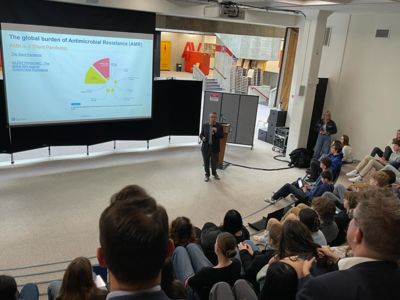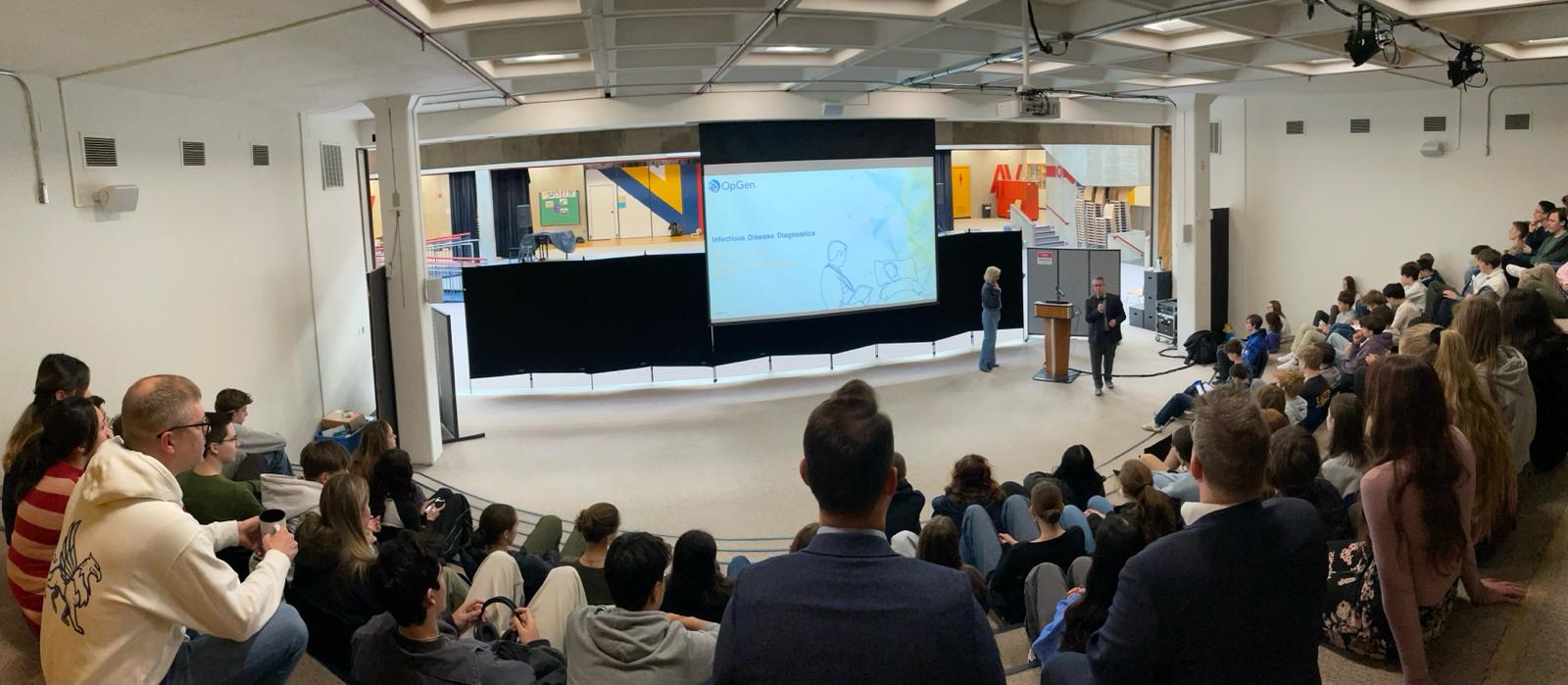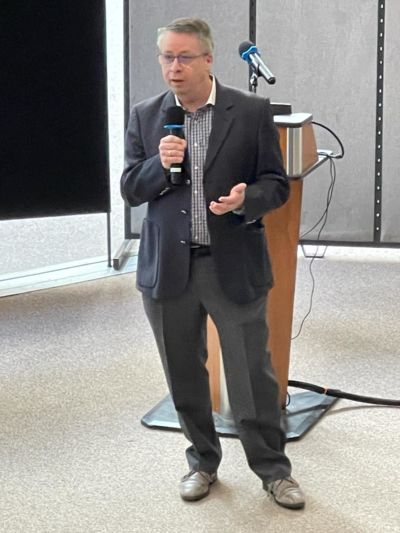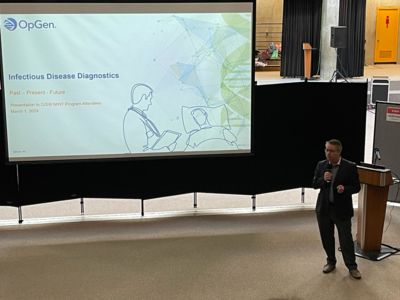Regular Schedule
TUESDAY, FEBRUARY 24, 2026
Der Unterricht findet heute entsprechend dem regulären Stundenplan an der Schule statt.
........................................................................
Classes follow their regular schedules at school.
STEM-Series #7: Antibiotic Resistance a Major Threat says Dr. Oliver Schacht

What would you do if a medical procedure that was once so simple, now became life-threatening? If antibiotics that can improve most ailments, just stopped working all of a sudden, what would you do; what would the world do? In the near future we might have to deal with this question.
On March 1st, 2024, as part of the GISW STEM - Series, Dr. Oliver Schacht gave a very interesting presentation on the subject of “Infectious Disease Diagnostics.” It highlighted the threat of antimicrobial resistance (AMR) and the importance of early identification of the pathogens in patients that cause severe infection, comparing traditional and new diagnostic methods.
Antimicrobials (for example antibiotics) play a crucial role in preventing and treating infections and diseases in humans, animals and plants, but AMR has become a global health threat known as the “silent pandemic.” AMR occurs when a pathogen develops a resistance so that it does not respond anymore to the drugs designed to kill it. These infections that used to be treatable can become life-threatening. According to Dr. Schacht, there are multiple factors contributing to AMR, but one main reason is the overuse of antibiotics in humans, animals, and plants. For example, farmers use more and more antibiotics in animals in order to multiply their profits. These animals are developing resistant bacteria in their systems which can spread to humans.
Losing effective antimicrobials due to AMR has severe consequences: “Super bugs” can cause potentially fatal infections such as Pneumonia. Also, many lifesaving surgeries rely on effective antibiotics. These procedures can no longer be performed safely without effective antibiotics due to AMR. There are predictions that by 2050, resistant infections will be the number one cause of death globally, with an estimated 10 million deaths per year.
One important measure to combat AMR is to improve the diagnostics of identifying the infectious germ and find out quickly to which antibiotics it responds.

However, the traditional diagnostic method (isolating, growing, and testing the bacteria) can take up to four days, which poses a severe risk to patients in bad condition. Common problems are that pathogens often cannot be identified in cultures, do not grow at all, or can be overlooked due to overgrowth by other bacteria. Therefore, this technique is not only time consuming but can lead to inadequate antibiotic therapy putting the patient in danger.

One promising solution is the development of a new “multiplex PCR-technology”, the UNIVERO system, that can provide accurate test results within hours: It does not require culture growth of the pathogens but takes bacterial DNA directly from the specimen, analyzes the DNA, creates copies, and runs these through automated antibiotic susceptibility tests. This new method provides results within 4-5 hours and can detect and collect data collect data on resistance genes. This faster and more accurate testing method improves diagnostics and leads to better treatment which saves lives and reduces medical costs.
Similar systems and a growing awareness of the “Silent Pandemic” can help hold off this impending disaster. Otherwise, scientists project, most antibiotics will be useless by 2050. We can all help prevent this catastrophe by thinking twice before taking an antibiotic the next time we don’t feel so well.
Antonia M. (9b) and Sebastian H. (9b)

“I believe that Dr. Schacht’s presentation was very informative and educational. I enjoyed hearing about this topic from somebody whose life revolves around making advances in the study of the Silent Pandemic. During the presentation, I was never bored or distracted, because of how engaging Dr. Schacht was with the audience. His presentation informed us about an important topic while holding the audience's attention. As a student, I applaud his presentation and cause, while also taking notes to help me improve my way of presenting.”
Alexandra R. (9b)









